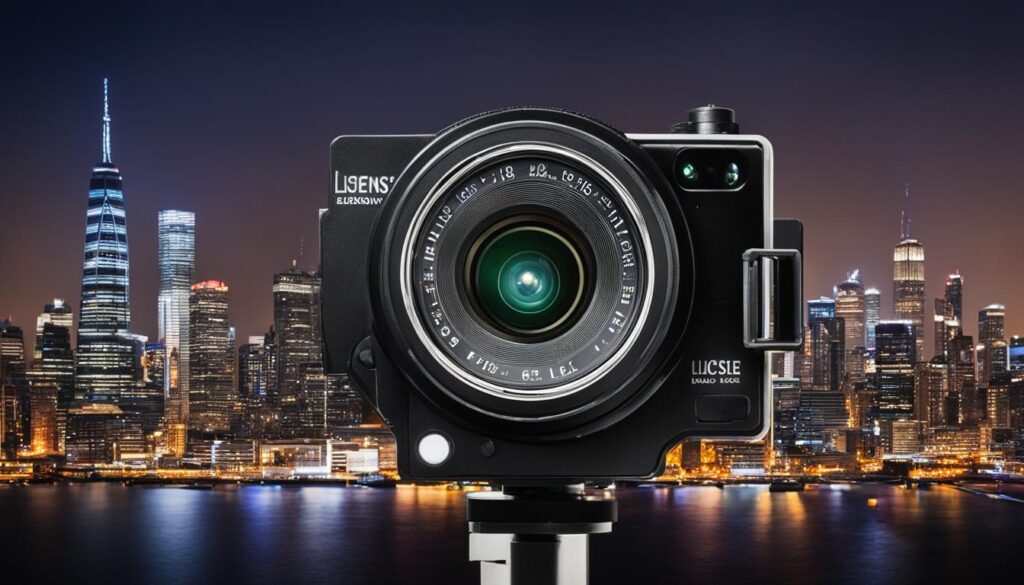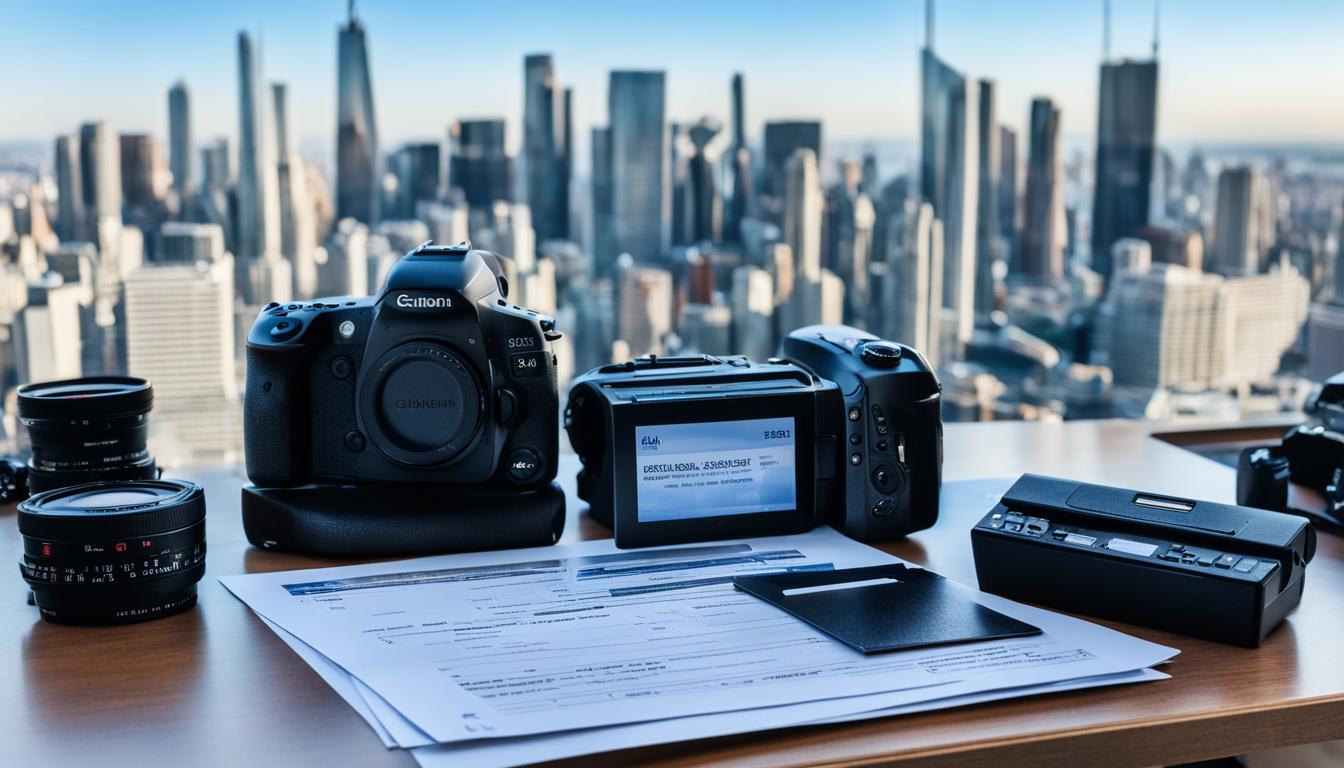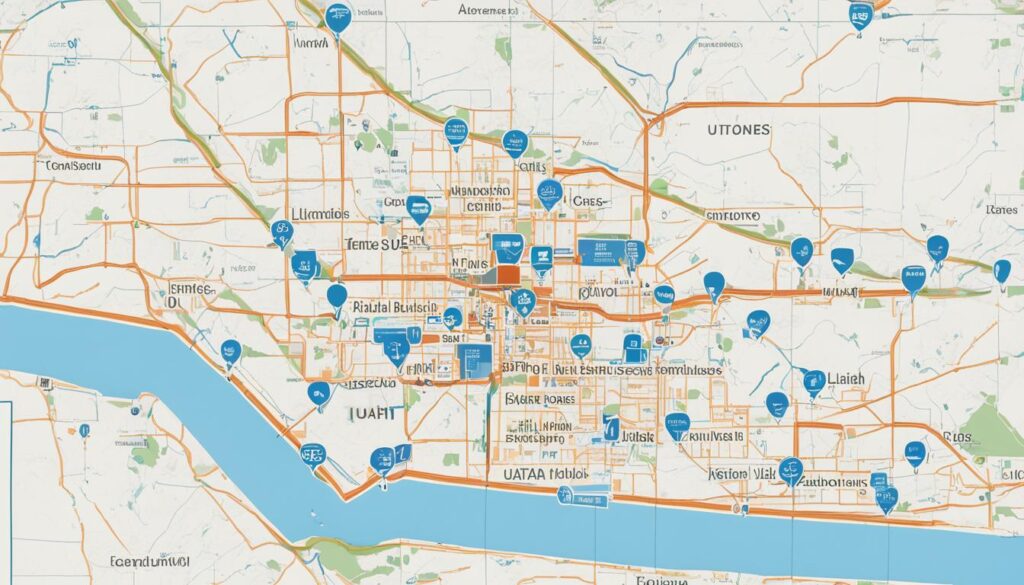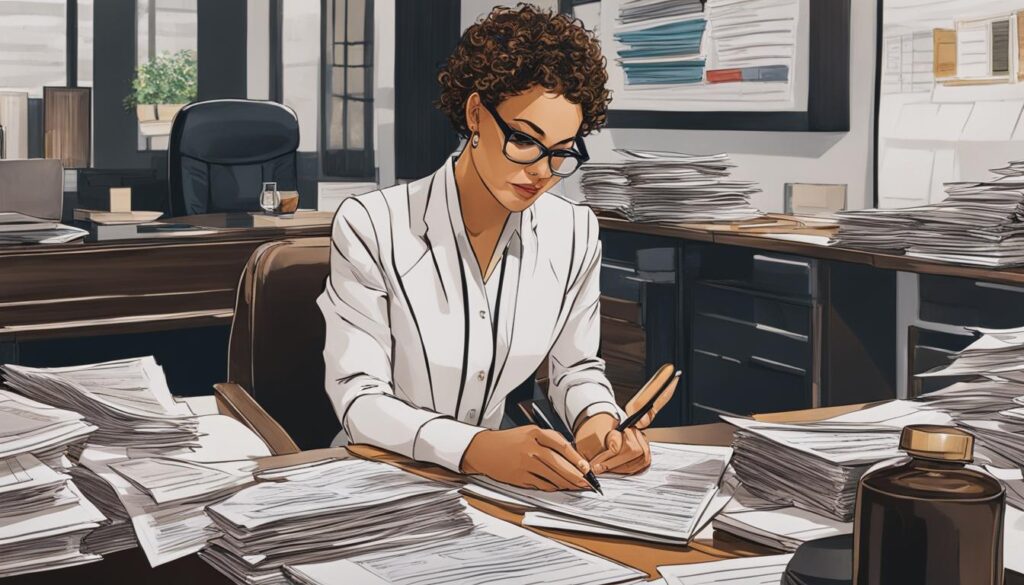Embarking on your journey as a freelance photographer can be exhilarating, but before you start capturing those stunning visuals, it’s imperative to pause and consider the business side of your art: namely, licensing. You might be wondering, do freelance photographers need a business license? While the imagery and framing may be your passion, navigating the legal landscape is a must to safeguard that creativity. In many parts of the United States, a specific freelance photography license is not a general requirement, yet that doesn’t mean you should leap without looking.
Each state and locality can have its own set of rules when it comes to licensing requirements for freelance photographers. This could range from general business licenses to specific permits for operating in certain public spaces. It’s crucial for you to connect with your state licensing board and local city hall to understand the nuances of the law as it applies to your photography business. Conducting due diligence now can prevent legal hiccups later, ensuring your path to success is as clear as your photographic vision.
Key Takeaways
- Understanding if a business license is necessary in your area is crucial before starting.
- Compliance with the law sets the foundation for a reputable photography business.
- Local and state regulations should be researched thoroughly to avoid penalties.
- Having the right licenses and permits can contribute to the professionalism and credibility of your services.
- Connect with local authorities such as city hall and state licensing boards for accurate information.
Understanding Business Licensing for Freelance Photography
If you’re venturing into the world of freelance photography, it’s essential to familiarize yourself with the concept of licensing. In the photography industry, licensing for freelance photographers isn’t just about legality; it’s about professionalism and preparedness, ensuring that your business operations are as seamless as your snapshots.
Whether you’re shooting weddings, landscapes, or corporate events, one of the first steps should be understanding how to get a business license for freelance photography. Contrary to popular belief, even if you’re working from the comfort of your home, a photography business license may be a requirement in your jurisdiction. While the thought of navigating legalities may seem daunting, rest assured, this guide is crafted to light your path to compliance.
- Start by researching local and state requirements for business licensing – every area is different.
- Consider whether you need a sales tax license or permits apart from the business license.
- Contact a legal advisor or fellow photography professionals who’ve gone through the process.
- Check out authoritative resources that provide a breakdown of licensing requirements state-by-state.
Remember, obtaining the necessary licenses for your freelance photography business not only ensures you operate within the law but also builds trust with your clients. They’ll know they’re dealing with a thorough professional who values every aspect of their business.
When it’s all said and done, the process of getting licensed can offer you peace of mind, allowing you to focus on what you do best—capturing life’s moments through the lens.
Examining Local and State Requirements for Photographers
As you venture into your career as a freelance photographer, one of your first steps should be to familiarize yourself with the license requirements that might apply to your business. Know that these requirements can differ markedly from state to state and even from one city to another. To fully understand your obligations and ensure you are operating within the law, a two-pronged approach is imperative: start by examining state mandates and then drill down to any city-specific legislation that could affect your business.
Checking with Your State Licensing Board
Begin your inquiry at the state level. Your state’s licensing board is the definitive source for understanding whether a business license for freelance photographers is needed. Some states might require you to hold a professional photographer’s license, while others may not. It’s crucial you call or visit your state’s official website to get the most accurate and up-to-date information on freelance photographers’ license requirements.
- Review state government resources for small businesses.
- Contact professional photography associations in your state for guidance.
- Check for any required business registrations particular to your state.
Inquiring at Your City Hall
After clarifying state requirements, your next destination should be your local city hall. Certain cities impose their own regulations that go beyond state mandates. Milwaukee, for instance, requires a specialized license for specific types of photography work. It’s possible your city has similar stipulations, or perhaps other permit requirements for conducting business within city limits.
- Ask about local business licenses and permits specific to conducting a photography business.
- Find out if there are zoning restrictions or home business regulations that apply to you.
- Inquire about local business taxes or fees that might affect you as a freelance photographer.
Defining the exact legal parameters for your freelance photography business can be complex, but it’s a fundamental step to protect your operations and elevate your professional credibility. With thorough research and a solid understanding of the business license for freelance photographers and freelance photographers license requirements, you’ll pave the way for a successful and compliant business.
Do Freelance Photographers Need a Business License?
Embarking on a freelance photography career opens up a world of creative possibilities. However, amidst the excitement of capturing stunning visuals, it’s crucial to ensure that your business stands on firm legal ground. Have you found yourself wondering, “do photographers need a business license?” or if a freelance photography business license is essential? Let’s delve into why licensing is a critical aspect of your professional journey.
The Role of a Business License in Photography
One might think that creating art doesn’t involve red tape. Despite this belief, acquiring a business license can be as crucial as the camera you use. Holding a license lends not only legitimacy to your work but also conveys that you’re operating within the legal frameworks of your area. Licensing paves the way for smooth, structured business operations, from adhering to zoning laws to qualifying for specific tax deductions.
Consider a business license as your entry ticket into the world of professional photography. It reassures your clients that they are dealing with a committed professional. Plus, it adds a layer of trust that’s priceless in the client-photographer relationship. When it’s time to file taxes or open a business bank account, that piece of paper with your official stamp comes in handy, ensuring that all financial processes proceed seamlessly.
Legal Implications of Operating Without a License
Navigating the tightrope of legalities without a license is risky business. If you choose to work without this credential, you might face some unpleasant surprises. Local authorities can impose fines, issue cease and desist orders, or even shutter your operations completely if they find you’re not in accordance with local business laws. The absence of a license can incur not just financial penalties but also damage your reputation and client trust, which are hard to rebuild.
By understanding and complying with licensing requirements, you create a secure environment to focus on what you love most—photography. While the upfront effort might seem cumbersome, consider it an investment in your business’s longevity and peace of mind. Staying informed and proactive in legal matters sets you up for ongoing success.
In a nutshell, you’re not just a photographer; you’re a business owner, and with that role comes the responsibility to abide by laws and regulations, including obtaining proper licensing. So, the answer is clear—yes, photographers do need a business license, and securing one should be high on your to-do list as you set up or continue to grow your freelance photography business.
Key Reasons Why Licensing Matters for Photographers
As a freelance photographer, understanding why you need a license and grasping the importance of photography business licensing can make a substantial difference in how you operate and present your business. Here are some pivotal reasons why securing a license isn’t just a bureaucratic formality, but a strategic move for legal compliance and professional credibility.
- **Legal Protection**: Licensing is your safeguard against legal pitfalls. It’s proof that your business is recognized under the law, which can protect you during property disputes or if unforeseen closures challenge your operation.
- **Health and Safety Standards**: A license often comes with inspections and regulations, ensuring that your business meets health and safety standards, which not only protect you but also your clients.
- **Professional Legitimacy**: Having a license bestows a sense of professionalism. It shows clients that you’re serious and committed to your craft, facilitating trust and establishing a strong business reputation.
- **Compliance**: A business license helps ensure that you’re in compliance with federal, state, and local tax laws. This is crucial, as failure to comply can result in hefty fines or even legal action.
- **Marketplace Competitiveness**: When competing for jobs, a license sets you apart, indicating that you’re running a vetted, responsible operation. This can be a deciding factor for clients when they’re choosing between potential photographers.
- **Networking and Resources**: Licensed photographers often gain access to networking opportunities, industry information, and various resources that non-licensed professionals might not have at their disposal.

Ultimately, securing a business license aligns with the best practices for operating a freelance photography business and anchors your professional growth on solid ground. It’s a compelling demonstration not just of your adherence to regulations, but of your dedication to the highest standards of professional practice.
Specific Cases When a Professional Photography License is Necessary
As you delve into the world of professional photography, it’s crucial to understand when acquiring a professional photographer’s license is more than just a formality. Let’s explore the conditions under which licensing becomes indispensable, using Milwaukee as a prime example of unique city requirements. We’ll also evaluate how professional certifications add value to your credibility and expertise as a photographer.
Unique City Requirements – The Milwaukee Example
In certain cities like Milwaukee, the regulations are specific. Here, you must have a legitimate Milwaukee photography license for conducting certain types of professional photographic endeavors. Such local mandates ensure that your services are recognized under official governance, letting you work without the fear of punitive actions. Whether it’s event photography or commercial shoots, verifying your need for a license with the local authorities is a crucial step in establishing your business on solid legal ground.
Understanding When Certification Adds Value
While not always mandatory, obtaining a certification like the Professional Photographers of America (PPA) certification can be a powerful tool in differentiating yourself from the fray. It might not legally qualify you to take pictures, but it convinces prospective clients of your commitment to your craft and to high professional standards. Such certifications can propel your professional image and reassure clients that they’re hiring someone endorsed by a reputable organization within the industry.
- Increases trust and credibility
- Signifies a dedication to continued learning and excellence
- Connects you with a community of professional peers
Sales Tax Licenses and Freelance Photography
If you’re a freelance photographer, it’s important to be aware of the requirements for collecting sales tax on your services. Most states in the United States classify photography as a tangible product, which means as a seller of that product, you’re responsible for applying, collecting, and remitting sales tax. To do this, you will need a sales tax permit for photographers. This certificate is crucial for operating within the law and ensures you’re not financially penalized for withholding sales tax revenue.
Understanding photography sales tax issues can be somewhat complicated due to the different expenses that might be a part of your photography package. For instance, when you invoice a client, are you clear on which components are taxable? Do you know if digital images are taxable in your state, or is it just the physical prints? These are the nuances that make collecting sales tax in photography particularly tricky.
- Research the sales tax requirements specific to your state.
- Apply for a sales tax permit before you begin selling your photographic work.
- Track all sales and ensure the correct amount of sales tax is being collected.
- Set aside the collected sales tax to avoid spending funds that you’ll owe the state.
Because the guidelines and rates vary so drastically from state to state, it might be wise to consult with an accountant who specializes in state tax law. They can provide you with tailored information ensuring you remain compliant with the law while also not overcharging your clients. Understanding these obligations isn’t just about following the law; it’s about building a trustworthy relationship with your clients by being transparent about costs.
The Steps to Obtain a Business License for Photography
As a freelance photographer, navigating the operational landscape means being aware of the essential steps for obtaining a business license. This process involves understanding not only your craft but also the legalities that come with turning your passion into a business.
Identifying Which Permits Apply to Your Business
To remain compliant and professional, you need to identify the right set of freelance photographer’s business permits. This may vary depending on the scope of your services, whether you’re capturing weddings or selling prints. You’ll want to compile a list that could include a general business license, a home occupation permit if you’re working from home, and possibly even a drone permit if aerial photography is a part of your services.
Navigating Local Government Registrations
Every locality has its own set of rules, which is why you must be well-acquainted with local government regulations for photographers. Your city’s or county’s government website is a great starting point. They provide resources for local businesses, outlining zoning laws you need to be aware of, especially if you’re planning to open a studio. In many cases, a simple phone call to the appropriate department can provide you with a clear direction on how to proceed.
Remember, the time invested in securing your business licenses and permits is foundational for your photography business’s growth and longevity. Once you’re well-informed about what’s expected in your community, you can focus on framing the perfect shots, knowing your business stands on solid legal ground.
Naming Your Photography Business: A Key Step in Licensing
When you’re on the brink of establishing your own brand, naming your photography business becomes more than just a creative endeavor; it’s a declaration of your brand’s identity and an essential facet of the business name registration process. A name acts as the cornerstone for all your branding and marketing efforts, so it should be memorable and befitting the professional image you wish to present to the world.
With countless photographers vying for attention, selecting from a palette of creative photography business names can be quite the challenge. However, it’s important to choose a name that not only captures the essence of your style and services but also one that has the potential to grow with your business. Reflect on the long-term objectives of your venture as you brainstorm.
- Ensure the name is unique and not already in use by checking with your local business registry or conducting an online search.
- Consider the ease with which potential clients can spell and pronounce the name.
- Avoid trendy words or phrases that may become outdated as your business evolves.
- Be descriptive but not so specific that you restrict your business to a particular niche, unless that is your intent.
Once you’ve selected the perfect name, the next step is to undergo the business name registration process. This legal formality can protect your business identity and paves the way for other important steps like securing business licenses, opening bank accounts, and establishing your online presence.

Don’t forget that your chosen name will represent your brand across various platforms and materials, including your business cards, website, and social media profiles. It’s an extension of your art and professionalism, one that tells your potential clients what they can expect from your services before they even see your portfolio.
Invest the time to get it right – a resonant and distinctive name can be a powerful tool in crafting a successful photography business that stands out in a competitive market. So, take a moment, reflect on your vision, and let creativity be your guide.
Choosing the Right Business Structure as a Freelance Photographer
As you venture further into your career as a freelance photographer, the decision of how to structure your business becomes increasingly significant. Not only does your choice impact your day-to-day operations, but it also affects your financial health and liability exposure. Understanding the differences between an LLC and a sole proprietorship, as well as the S Corporation benefits for photographers, is vital in making an informed decision for your practice.
Comparing Sole Proprietorship and LLC
If you’re weighing LLC versus sole proprietorship for photographers, there are a few key aspects to consider. A sole proprietorship is the simplest business structure you can choose. It involves less paperwork, and it’s easier to set up, which might seem appealing when you’re eager to jumpstart your business. However, the benefit of simplicity also comes with the drawback of personal liability; if your business faces legal action, your personal assets could be at risk.
On the other hand, an LLC, or Limited Liability Company, shields your personal property from business-related lawsuits. This structure provides a layer of protection between your personal finances and your business obligations. Although setting up an LLC is more complex than operating as a sole proprietor, many photographers find the added peace of mind to be worth the extra steps.
When to Consider S Corporation Status
S Corporation status might not be the first thing on your mind when you’re starting out, but as your photography business flourishes, it’s a structure worth considering. The S Corporation is a special tax status that can be elected by LLCs or corporations, offering unique tax advantages. One of the S Corporation benefits for photographers includes potentially reducing self-employment taxes as your income grows, providing a more favorable tax treatment for the business.
Keep in mind, the leap to S Corporation status requires adherence to more formal management processes and stricter compliance regulations. If you think your business revenue will increase significantly over time, planning for an S Corporation election might be a strategic move for your long-term success. As always, do your due diligence or consult with a tax professional when choosing a business structure that best suits your needs.
Remember, the freedom and creativity you enjoy as a photographer need not be clouded by business structure complexities. Whether you’re just starting out or looking to grow your business, taking the time to carefully consider your options will help ensure the stability and longevity of your photographic endeavors. And, when in doubt, seeking advice from a legal or financial expert can help you navigate your unique situation with clarity.
Protecting Your Business Through Insurance
As a photographer, you’ve honed your craft and invested in high-quality equipment to capture those perfect moments. But what happens when the unexpected strikes? That’s where photography business insurance comes in. Just like your camera lens cap protects your lens from scratches, the right insurance shields your business from financial hardship.
Imagine you’re shooting at an event, and an expensive lens takes a tumble, or a guest trips over your tripod, resulting in injury. Here’s where liability insurance for photographers becomes indispensable. It not only defends you in the face of potential lawsuits but also covers the repair or replacement of damaged gear. Think of it as asset protection for your photography business—a safety net that lets you focus on your art.
Insurance options for photographers are not one-size-fits-all. Depending on your needs, there are different types of policies:
- General Liability Insurance
- Professional Indemnity Insurance
- Equipment Insurance
Each type of insurance serves a unique purpose in your risk management strategy. General liability helps when you’re held responsible for bodily injuries or property damage. Professional indemnity is your go-to when facing claims of negligence or mistakes in your work.
For the gear you’ve painstakingly acquired, equipment insurance is vital. Cameras, lenses, lights, and computers—your key assets are covered against theft, damage, or loss.
So, where should you begin? Start by researching and reaching out to insurance providers who specialize in policies for the photography industry. They’ll understand the nuances of your work and help you tailor coverage that’s as precise as your focus when you frame a shot.
Remember, having the right insurance in place is as critical as the camera in your hands. It ensures that no matter what comes your way, your business can continue to flourish, and you can keep doing what you love—creating beautiful photographs that tell a story.
Freelance Photographer’s Guide to Sales Tax Compliance
As you immerse yourself in the world of photography, it’s important to remember that capturing stunning images is just one aspect of your business. Ensuring sales tax compliance for photographers is equally vital to keeping your focus on creativity rather than on unwelcome tax surprises. With the right photography sales tax guidance, you can steer clear of potential pitfalls and stay in good standing with tax authorities.
When You’re Required to Collect Sales Tax
Understanding when to collect sales tax can be tricky. Generally, if you’re providing a tangible product to your clients, such as printed photos or albums, you’re likely obligated to include sales tax in your billing. In some instances, separating your charges for services and products can impact your tax responsibilities, but these rules vary widely by state. Therefore, being familiar with your specific state’s tax laws is crucial to maintain proper compliance.
Consulting an Accountant for Complex Tax Situations
Given the complexity of tax laws, it’s wise to seek out a consulting accountant for photography tax matters. These professionals can offer a wealth of knowledge tailored to your unique situation, ensuring you’re updated on current tax regulations and able to navigate the complexities of sales tax. With their expertise, you can minimize the time spent on tax compliance and maximize the time dedicated to what you love most – photography.
- Always confirm current sales tax rates and regulations with state and local authorities.
- Keep meticulous records of all sales transactions, with careful accounting for taxed and non-taxed items.
- Consider consulting with a tax professional at least once a year to ensure ongoing compliance.
By embracing the practice of proactive sales tax management, your business can avoid legal ramifications and establish itself more firmly as a trustworthy professional entity. Ultimately, understanding sales tax compliance is a safeguard, protecting both your art and your livelihood.
Conclusion
Embarking on starting a freelance photography business aligns you with a journey of artistic expression and financial opportunity. However, the path to success involves more than just talent and creativity. The legal aspects of freelance photography play a crucial role in establishing a resilient foundation for your business. By diligently completing necessary licensing requirements, you are not just complying with regulations, but you are also reinforcing the security and credibility of your venture.
Your commitment to satisfying legal obligations—such as obtaining the right business license, permits, and insurance—signals to your clients that you are a serious professional. This level of professionalism is integral in building a credible photography business, one that stands out in a competitive market. From protecting your work and assets to fostering trust with clients, adhering to these legalities acts as a silent ambassador of your brand’s integrity.
As you step forward, carry the knowledge that navigating through bureaucratic processes is a stepping stone to your growth as a freelancer. Remember, you’re not only capturing moments through your lens; you’re also focusing on a picture-perfect business model where legal compliance meets creative entrepreneurship. Cultivate this synergy, and watch your photography business flourish in an industry that values both artistic and professional excellence.
FAQ
Do freelance photographers need a business license?
In many cases, yes, freelance photographers do need a business license to operate legally. The requirements can vary depending on your location and the nature of your photography business. It’s important to check with local and state authorities to understand the specific licensing requirements for your area.
What are the licensing requirements for freelance photographers?
Licensing requirements for freelance photographers can include obtaining a business license, sales tax permit, and zoning permits, among others. These requirements vary from state to state and even from city to city.
How do I get a business license for freelance photography?
To get a business license for freelance photography, you need to apply through your local city or county government office. This will typically involve filling out an application, paying a fee, and providing specific details about your business.
What are the consequences of operating my photography business without a license?
Operating your photography business without the required license can lead to penalties such as fines, a cease and desist order, and the potential closure of your business. It’s best to understand and fulfill all legal requirements before starting your business.
Why is licensing important for photographers?
Licensing is important for photographers because it ensures that your business is operating legally, can provide protection against certain liabilities, and establishes credibility with your clients. It’s a fundamental aspect of running a professional and trustworthy business.
Are there any cities that have specific licensing requirements for photographers?
Yes, some cities have specific licensing requirements for photographers. For example, Milwaukee requires a professional photographer’s license to perform certain types of photography. It’s crucial to investigate the unique requirements in your city.
Do freelance photographers need to collect sales tax?
Generally, freelance photographers are required to collect sales tax on the products they sell, which may include physical prints or digital files, depending on state laws. A sales tax permit or certificate is necessary to legally collect and remit sales tax.
What steps should I take to obtain a business license for my photography business?
To obtain a business license, research your local and state licensing requirements, prepare any necessary documentation, select a business name, decide on a structure (e.g., sole proprietorship, LLC), and apply for the appropriate licenses and permits.
How should I name my photography business for licensing purposes?
Choose a unique business name that reflects your photography services and can grow with your business. Make sure to check for name availability and trademark conflicts before registering your business name with the licensing authorities.
Should I choose an LLC, a sole proprietorship, or an S Corporation for my photography business?
Each business structure has its own advantages and disadvantages. Sole proprietorships offer simplicity, LLCs provide personal liability protection, and S Corporations offer potential tax savings. Your choice will depend on your individual business needs and goals.
Is insurance necessary for my freelance photography business?
While not a license, insurance is critical to protect your freelance photography business from potential losses, liabilities, and risk management, especially if you work at events or have valuable equipment.
When am I required to collect sales tax as a freelance photographer?
You are typically required to collect sales tax when selling products related to photography, such as prints or albums. The rules can vary, so consult an accountant to understand the specific sales tax regulations in your state.
Should I consult an accountant for complex tax situations as a freelance photographer?
Yes, an accountant with knowledge of your state’s tax laws can provide guidance on complex sales tax situations for your photography business. This can help ensure you comply with tax regulations and avoid legal issues.




